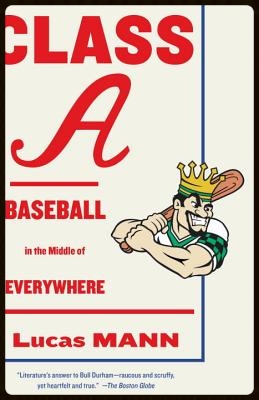By Emily Heiden
Lucas Mann wears a humble smile as he passes out a story he wants us to read. It’s not one that he has written – this particular piece is about a journalist who endangered his life during the Vietnam War in the name of a new kind of reporting. We discuss the ethics of such a piece and what it means to immerse oneself in a specific place in order to write about it.
Mann too has immersed himself in this way, except that his place was a small town in Iowa, where he watched a lot of men play (and lose) a lot of baseball, and sometimes he dressed up in a giant suit as the team’s mascot, ‘Louie the Lumberking’.
He talked with us about this type of reporting, or nonfiction – about “showing up somewhere and simply not getting turned away” – and what kinds of projects can take shape when writers are allowed to stay and really come to know a people and a place. Mann’s book, Class A: Baseball in the Middle of Everywhere (Vintage 2014), is a lovely example of what can emerge from hunkering down and observing a subject until a writer finds the story; that team, those men, that place.
Class A is an explication of what Mann observed in Clinton, Iowa: men imported from around the world to play baseball in one of the lowest-level leagues that exists; the people who populate the stands; the workings of the town itself. It shows us an enigmatic factory on the edge of town that emanates a terrible smell, the train-cars filled with tons upon tons of corn being shipped out of the Midwest for processing and livestock feed, photos of players’ girlfriends – who the men call a “blessing” – and other instances of surprising humanity that tug at the heart.
I learned a lot from Class A, from Mann’s decision to begin in medias res, in which he “enter[s] his torso” (code for pulling on his mascot outfit to become Louie the Lumberking) to the effective portraits he paints of both people and place. His writing – and his teaching style – captured even this decidedly non-baseball-loving reader’s attention.



